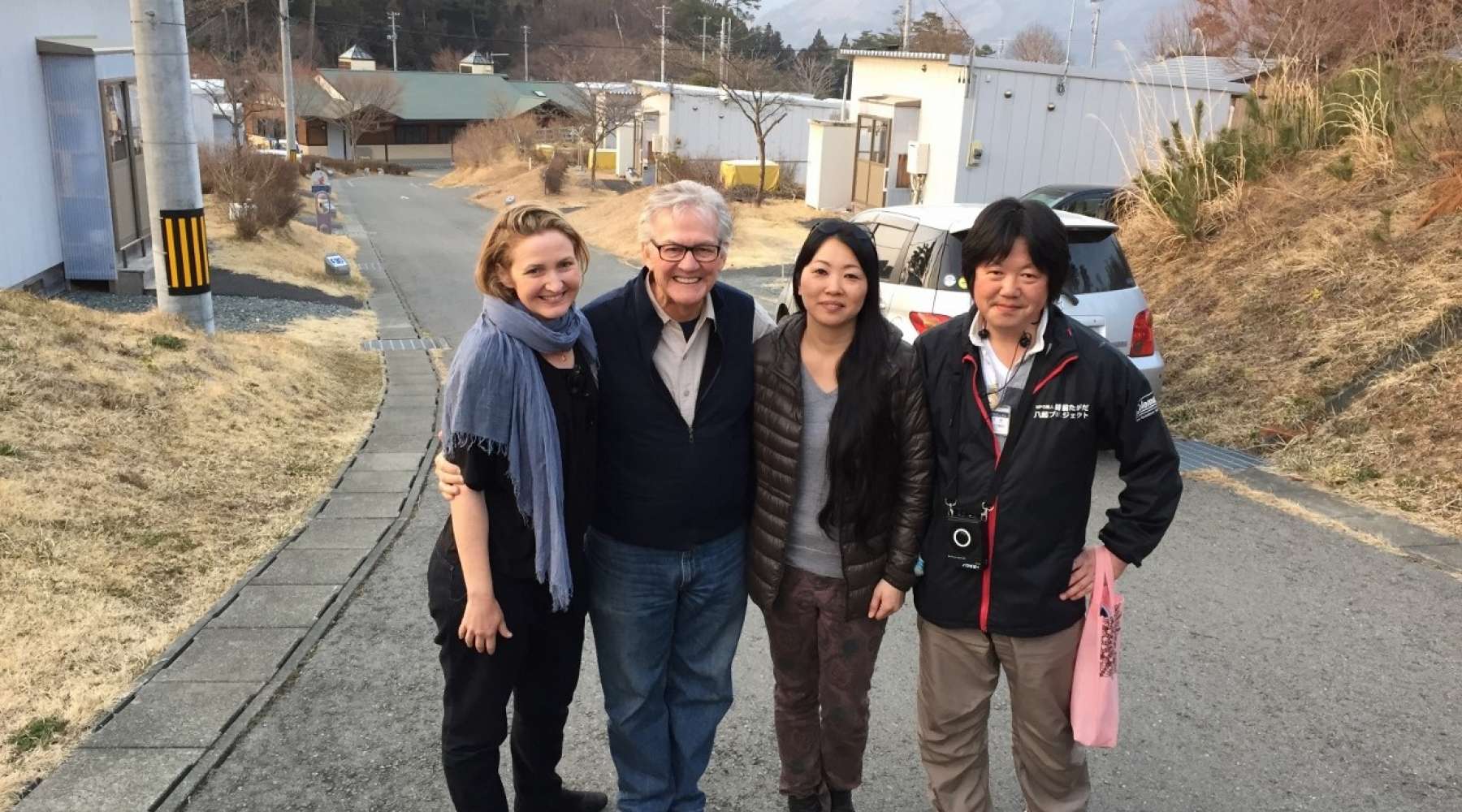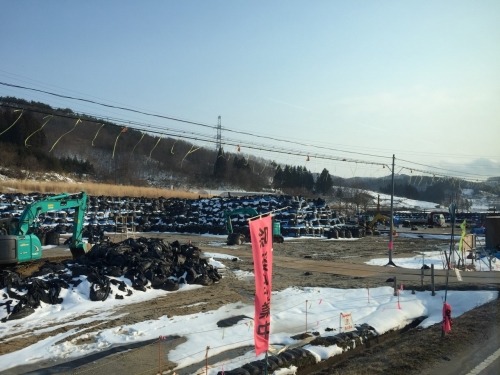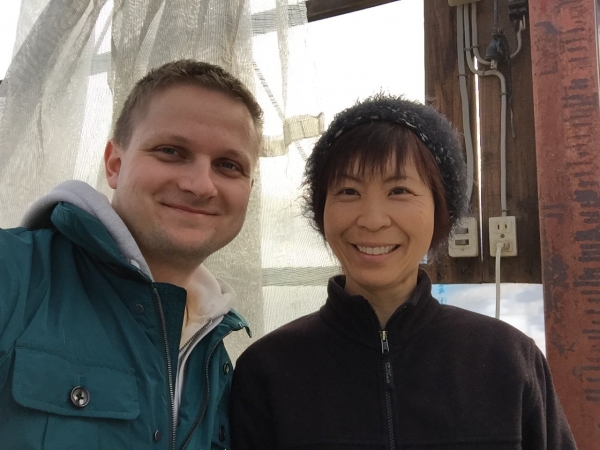
By Dmitry Kaleganov T'16
 Dmitry is a first-year student at Tuck who is originally from Moscow, Russia. Before Tuck, Dmitry worked as the head of IT Operational Excellence office for Sberbank, the largest bank in Central and Eastern Europe which employees more than 240,000 people in Russia and is represented in more than 20 countries. Previous to Sberbank, he worked for boutique project management consulting company PM Expert and large Austrian banking group Raiffeisen International. Dmitry is a proud alumnus of the second oldest university in Russia, Bauman Moscow State Technical University.
Dmitry is a first-year student at Tuck who is originally from Moscow, Russia. Before Tuck, Dmitry worked as the head of IT Operational Excellence office for Sberbank, the largest bank in Central and Eastern Europe which employees more than 240,000 people in Russia and is represented in more than 20 countries. Previous to Sberbank, he worked for boutique project management consulting company PM Expert and large Austrian banking group Raiffeisen International. Dmitry is a proud alumnus of the second oldest university in Russia, Bauman Moscow State Technical University.
During the 2015 spring break, 15 tuckies, including me, went to Japan for the Global Insight Expedition, “Japan Today: Through the Lens of the 2011 Tohoku Triple Disaster.” The major goal for students was to learn about Japanese reconstruction efforts after the devastating earthquake. The GIX was led by former CEO of AmeriCares and Tuck Senior Fellow Curtis Welling and the Japan country representative of AmeriCares Ramona Bajema. It was an extremely intense and enriching trip. We went to eight cities: Tokyo, Fukushima City, Sendai, Ishinomaki, Minami-sanriku, Rikuzentakata, Ofunato, and Ichinoseki.
Our group learned about Japan’s efforts to reform its energy sector after shutting down nuclear power plants supplying 30 percent of its energy. We interacted with local people affected by the disaster and with leaders in government, business, and NGOs who are engaged in efforts to revitalize Japan’s economy. All of these experiences were very valuable, however, the major discovery for me was learning more about the Japanese people, their mindset, and way of thinking. I want to tell you about three words that are common, but are the most important ones for Japanese society: respect, resilience, and harmony.
During our trip, I realized that Japanese people are very close in mindset and behavior to Russians. I remembered my business trips to Yekaterinburg, Russia while I was at Sberbank. The border between Europe and Asia is in the Urals regions of Russia. I remember many Europe-Asia border monuments, but I always questioned this border, because Russians are an interesting blend of European and Asian people. I realized that behavioral norms that were infused in me in the Soviet Union were similar to norms in Japan: respect (respect for the elderly, respect for the people around you, etc.) modesty, silence, being hardworking, etc.
I learned that the word Respect is the most important word in Japanese culture as well as in Russian: it penetrates every aspect of people’s lives, but in Japan it spans even further into behavior and  interaction.
interaction.
Even though I have traveled to more than 30 countries, I have never seen a more clean country—it’s crystal clean even around gigantic construction areas in the Tohoku region. Cleanliness doesn't depend on the availability of trash bins: you may not find a trash bin within a mile of where you are. People are so respectful that they just carry their own trash with them. They are so respectful that they do not cross the road when there is a red light even there are no cars or people around. They are so respectful that they are very silent in common areas: subway, bullet train, the street, and in shopping centers. Respect was instilled in Japanese people for many centuries, so the ceremonial behavior of the Japanese, such as obeying all thr rules, may seem strange to western people.
Our senseis, Curtis Welling and Ramona Bajema, through continuous reflections and sensitive guidance, helped us to understand and internalize the importance of Respect in Japanese culture. I believe that this deep understanding impacted every student in the group.
The second important word is Resilience. Before going to Japan, I thought that Russians were the only ones so resilient that they became stronger when faced with extreme adversity, such as during World War II with the loss of over 30 million people. However, seeing the process of how Japanese people overcame the Tohoku Triple Disaster, I was happily surprised to learn that Japanese people share this same resilience and a never-give-up attitude. Meeting with displaced people who lost not only their homes in the tsunami but also their families, I have seen a strong will to fight until the end. Even though they are surrounded ugly black plastic bags with contaminated soil, they are happy to live, work hard, and contribute to the community to help others overcome the effects of disaster.
Last, but not least, there is the word Harmony. It is important for the Japanese to reach an agreement together with the local community before deciding on almost anything: building a sea wall, a kids’ playground, or a hospital for the elderly. The process of reaching an agreement in the community is important and may take several years. Even now, some communities are debating over whether a sea wall should be built. There are tradeoffs to be made: some level of protection from a tsunami versus having a visible and spiritual connection with the ocean. However, in the end, everything results in harmony and agreement, strengthening the Japanese local communities as the building block of the nation.
Respecting each other and overcoming hurdles together, the Japanese people are overcoming such a terrifying disaster and are returning an important harmony to Japan. Learning about tragedies and ways people are overcoming them, one can learn how to be a better person. Fifteen Tuck students learned about three common but very important words: Respect, Resilience, and Harmony.
Now these students are ready to enrich business society through their life changing experience.

Dmitry with Akiko san, a local farmer in the Fukushima prefecture who is trying to rebound farming there by growing flowers where is prohibited to grow food because of nuclear contamination.